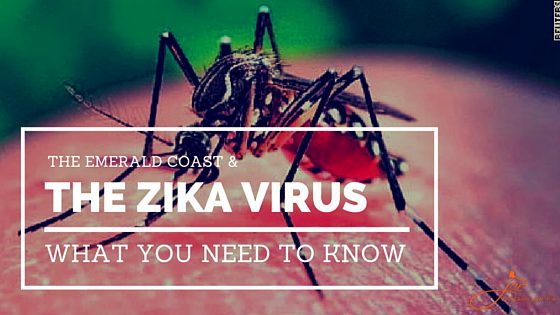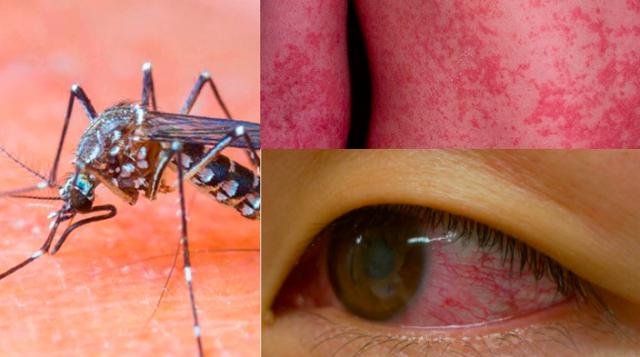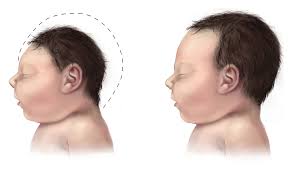 Recent coverage of the Zika virus can seem a bit overwhelming and confusing. My non-scientific, anecdotal experience finds that the name “Zika” itself brings back some of the same “Ebola pandemic” concerns. The Zika virus carries somewhat of an ominous connotation — “The Zika Virus has spread here, what do we do?” “Someone at work may have brought Zika virus to the office…” “The news has the Gulf Coast and Pensacola as the next Zika virus hotbed…”
Recent coverage of the Zika virus can seem a bit overwhelming and confusing. My non-scientific, anecdotal experience finds that the name “Zika” itself brings back some of the same “Ebola pandemic” concerns. The Zika virus carries somewhat of an ominous connotation — “The Zika Virus has spread here, what do we do?” “Someone at work may have brought Zika virus to the office…” “The news has the Gulf Coast and Pensacola as the next Zika virus hotbed…”
As of February of 2016, PNJ reported Santa Rosa County has a confirmed case of the Zika virus, bringing the total number of travel-related health cases in Florida to nine. To date, Florida has confirmed nine travel-associated cases in the following counties: Miami-Dade, 4; Hillsborough, 2; Lee, 2; Santa Rosa, 1.
Here is a summary of some of the information which you need to know during the warm-weather months when the conditions are most opportune for the spread of said virus. Hopefully, this bullet point listing of some factoids will provide some reference on this topic.
The take home message is to enjoy this fantastic time of year here on the Gulf Coast and to be empowered with knowledge and understanding of the environment we live in.
If you would like to know more I suggest following the guidelines as set forth by the Centers for Disease Control and Prevention: http://www.cdc.gov/zika/
Stay Informed: The Zika Virus
- WHAT: Zika is a virus. Not a bacteria. Not a fungus. Not a parasite. Not an insect (though it is spread by insects).
- REGION: Latin America, Southeast United States
- INSECT SPREAD: Mostly transmitted to humans by mosquito bites (Aedes mosquito to be more specific).
- HUMAN TRANSMISSION: Via direct blood contact — blood transfusion, pregnant mother to fetus, sexual transmission. Note that no other bodily fluids currently are understood to harbor the virus.
- SYMPTOM ONSET: Two to seven days following a bite from an infected mosquito.

Most people infected with Zika virus won’t even know they have the disease because they won’t have symptoms. The most common symptoms of Zika are fever, rash, joint pain, or conjunctivitis (red eyes).
- SYMPTOMS: fever, rash, eye pain and redness (conjunctivitis), muscle aches (myalgia), fatigue
- SYMPTOM DURATION: Several days to one week.
- PREGNANCY: Women who become infected during any trimester of pregnancy can transmit the Zika virus to their fetus, which is associated with microcephaly of the child (small head, small brain).

Microcephaly is a birth defect where a baby’s head is smaller than expected when compared to babies of the same sex and age. Babies with microcephaly often have smaller brains that might not have developed properly.
Prior Zika virus infection does not place future pregnancies at risk, though planning for pregnancy should take possible recent Zika virus infection into consideration.
- COMPLICATIONS (non-pregnant individuals): As with any other viral infection, those with pre-existing chronic illness are open to a more-complicated infectious course. In no particular order, these diagnoses would place one at higher risk for complications — heart disease (congestive heart failure, cardiomyopathy), chronic lung disease (COPD, emphysema, asthma), diabetes mellitus, chronic kidney disease, immunocompromised state (cancer, chemotherapy).
- RARE COMPLICATION: Though rare, Guillain-Barré syndrome can occur. This is marked by progressive muscular paralysis which can contribute to further cardiopulmonary dysfunction if not diagnosed or treated. It should be noted that this same process can occur from many other viral and bacterial infections so this is not a new or unique issue in regard to infectious disease.
- TESTING FOR ZIKA VIRUS: Laboratory testing does exist, however diagnosis is often based upon possible virus exposure and clinical history (signs, symptoms). Blood (and, recently urine) tests are being used for disease monitoring. Consult your healthcare provider with regard to what testing protocol may currently be in place as these tests are evolving.
- TREATMENT: Supportive therapy is the standard. The same as with many other viral infections (common cold, gastroenteritis). Hydration. Rest. Attention to co-morbid conditions which may need to be supported more aggressively, consult your physician.
- VACCINATION/IMMUNIZATION: Does not exist.
- PERSONAL PROTECTION: Avoidance of mosquito bites — window and door screens, long-sleeve clothing, insect repellents (sunscreen is first layer, then apply repellent).
- TRAVEL: Pregnant women should avoid travel to regions with known, ongoing Zika virus transmission. Non-pregnant individuals need to understand the same information as listed above when considering travel plans.
- PREVENTION: Limit or reduce optimal breeding grounds for mosquitoes (standing water, yard debris).
Taking this information into consideration be safe and enjoy the season. If you have more specific questions in regard to Zika please consult your community and governmental resources – local health department, CDC, and your medical provider.